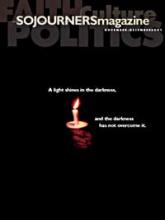War was so much easier before the world's borders began to seep like a sieve. In past times, the enemy was always a nation, discretely identified, locked within its history, obvious in its breadth and scope. There were no such things as shadowy groups independent of the political state, unrespecting of borders, only ideologically defined. There were simply national rivalries to justify retaliations or a series of negotiations that broke down or incursions into foreign territories or treasons or spy activities out of which to fashion global tensions. It was all neat and military and official. War was not a handful of individuals seething with anger, taut with murderous purpose, seeking vengeance against a nation through the determined violation of its civilian population.
And that is precisely the problem. This time there is no one with whom to negotiate, no international laws to argue, no armies to pit one against another in precise soldierly fashion. It is a delicate situation, politically, psychologically, socially.
It is an even more delicate situation spiritually. It requires the wisdom of Solomon to judge between the perpetrators and victims, to know one from another, to arbitrate between one and the other. We don't know how to handle this one.
But we do know that at no time in history have the powerful ever prevailed over the powerless. The powerless have been defeated, of course, but they have never been conquered. They wait and they rise again. "Peace to the shacks, war to the palaces," they shouted in the French revolution. And in the end, it was the shacks that won, as did farmers in 18th century Vermont against the British army, the most disciplined, best equipped, best trained army in the world.
Read the Full Article

